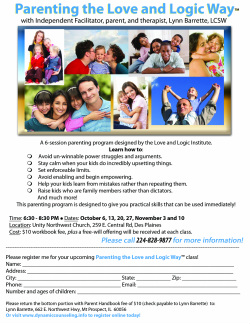 My son's third grade teacher was an angel sent from God. None of our neighbors thought so. I didn't think anything of it when kids would find out who he had been assigned to for third grade, their comments would be along the lines of, "Oh, she's mean", and, "Bummer, dude." Well, a mean teacher to a kid means that she keeps them in line and enforces classroom rules. I'm all for that. But when the parents would hear who he had for a teacher, then wince and sadly say, "Ohhhhhh", I admit I was a bit worried. She turned out to be exactly what my son needed the most. She spent long hours with me many a-day after school, trying to figure out what would work best for my son in the classroom. She told me one day, "I lose sleep at night if I think I'm not reaching a child in a way that will help him learn." And, I knew she meant it. We worked together until he was up and running in his new school, and loving it! One of the best pieces of advice she gave her school kids' parents on Curriculum Night was this: "It is so easy to complain about school. We work those kids hard. They will be happy to tell you all the bad things that happened in school each day. What I highly recommend to you parents is to challenge them each night at the dinner table with this question: 'What are three good things that happened at school today?' Have this interaction consistently, and they will begin to look for good things during the day. It makes a big difference when they are looking for the positive, instead of expecting what's hard at school." So, since our dinner time never seemed to lack discussions on the awful things that happened that day, we decided to implement that at our house, not only with our third grader, but our seventh grader as well--and three years later, this remains our dinner table ritual on school nights: We sit down to dinner, say our meal blessing, then ask "Who wants to tell us their three good things first?" It's fun to see them race to go first. When one is speaking, she or he gets everyone's full attention. We can ask questions about the good thing, or simply listen respectfully. We did have to make the rule that having pizza for lunch didn't count as one of the good things, but what game played in gym class is okay. Our kids are always processing their daily lives, just as we do as adults. In Dr. Dan Siegel's book, Mindsight, he describes how learning to process day-to-day occurrences as children supports emotional regulation as adults as well. Encouraging kids to talk about their experiences gives them a safe space to do this. Journaling is a great processing tool, and many of you know that I am big on it. Recently, educator Kevin Strauss sent me information on his website called FamilyeJournal.com. Here is Mr. Strauss' description of this innovative, family bonding site: "FamilyeJournal (FEJ) is like family dinner online. FEJ offers a new set of four questions each day and each family member responds online. When you read your family member's answers, a new rapport, familiarity and connection occurs. It's simple, free and fun to share online which leads to a stronger connection offline." So if your family is busy with activities, and more time is spent on Facebook than face-to-face, you might try FamilyeJournal out to connect your family more deeply, yet simply. No matter the method, giving our children an avenue for discussing their day, both the positive and more difficult aspects of the day, is important to learning emotional processing and regulation, as well as feeling loved, listened to and supported.
3 Comments
 When my oldest child was four years old, she had the run of the household. Everyone knew it but me! A friend invited me to a parenting class called "Becoming a Love and Logic Parent". I soon began enjoying parenting much more--and my new parenting choices gave my kids a better start in life! That oldest child is now 17 years old. Recently she said to my husband, "I want to know how you and Mom raised me so that I turned out the way I did, instead of like some of the other kids at school. I want to raise my kids that way, too." That is truly the highest compliment I ever received! I give much of the credit to the principles of Love and Logic as we applied them to our home. I took that class three more times before becoming a facilitator. I still love learning from this class as I am facilitating it! Beginning October 6, 2014, from 6:30 to 8:30 pm, I will be leading "Parenting the Love and Logic Way" for six Monday evenings. The multimedia class will be held in the Fellowship Hall of Unity Northwest Church, 259 E. Central Rd, in Des Plaines, IL, near the intersection of Rand and Central Roads. Cost is simply a free-will offering, received each class, plus a $10 fee for the Love and Logic Parent Handbook. This class will teach you how to:
This parenting program is designed to give you practical skills that can be used immediately! I hope you can join me and other parents who are committed to positive, healthy parenting! Click on the image and register today!  Greetings, Parents! Well, it is that time of year. Slowly we are creeping into our new routines before and after school. This is a great time to check in with ourselves to see if we are working too hard for our children's success in school. I've already had to bite my tongue, sit on my hands, and walk away to keep myself from helping my children adjust to their new school starting time (7:30 a.m., really?), time management, homework load, organization and extracurricular activities...That pretty much covers it, doesn't it? Here is a great article from Empowering Parents on learning the balance between being a responsible parent and "helping" too much: Learned Helplessness: Are You doing Too Much for Your Child? My favorite highlight of the article is: Stay in your own box: We must learn to distinguish what is our responsibility as a guiding parent, and what is our child's life lesson. How do we do this? 1. Recognize when we are helping too much. Usually, if we are stressed or worried about our child's “something” getting done, we are totally in their box. You know the feeling: tense stomach, clenched teeth, hands all over their backpack and school work. What can you do to get out of his or her box, and back into your own? 2. Expect resistance to our retreat. Whenever we change parenting behavior, we can expect that our children won't like it, especially when we are not "helping" them (read: "doing things for them") as much as we were before. Signs that you are getting resistance from your child: Whining, thrashing about, "I can't do it," "I'm not smart enough," "I'm too tired," maybe even some yelling and stomping. This is when we really have to stick to our parenting guns. 3. Expect resistance to our retreat. No, that isn't a typo. I did repeat #2, except that #2 is about our child's resistance to change. This one is about our own resistance to changing. We don't like to see our children fail. Ever. It is hard to stop ourselves from reminding our children about the importance of sleep, protein for breakfast, their need to manage their time wisely, and on and on. For awhile, we might be biting our nails, walking away, hand over mouth, trying to be calm and detached when asking, "So, you got that assignment done, right...? And it's in your backpack, right...?" Then stopping ourselves from running to the backpack and double checking. 4. Stay in our own box! As we consistently remain in check with our responsibilities versus our children's, they will figure out how to accomplish tasks on their own, and we will figure out how to let them. We can support our kids in managing their time and responsibilities so they can learn those life skills that we had to learn as kids. At the same time, we are lowering our stress level by not adding our child's responsibilities to our own long list of "to-dos." Enjoy the routine of the new school year, and may you have many opportunities to remain free and clear of what is your child’s to do! |
Helpful Parenting Sites:Love and Logic Parenting Archives
February 2017
Categories
All
|
 RSS Feed
RSS Feed